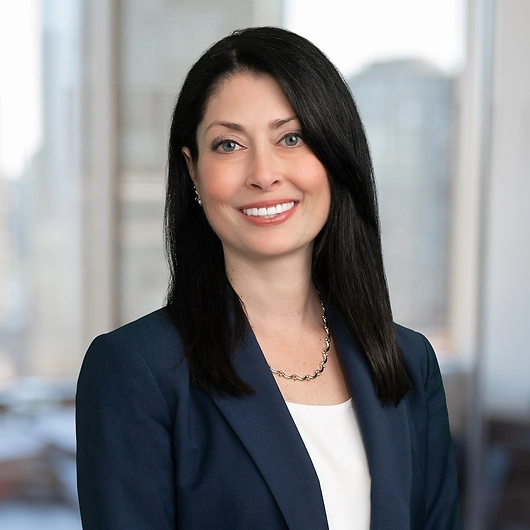On April 14, 2020, exactly two weeks after the Families First Coronavirus Response Act (“FFCRA” or “Act”), went into effect and the U.S. Department of Labor (“DOL”) issued a temporary rule (“Rule”) interpreting the paid sick leave and emergency family and medical leave provisions of the Act, the Attorney General for the State of New York, Letitia James (“AG”), filed a legal challenge to that Rule. [1] In the lawsuit against the DOL, the AG alleges that various provisions of the Rule violate both the statutory language and the intent of the FFCRA.
As we previously reported, the FFCRA is a sweeping piece of legislation, which, among other measures, requires most employers with fewer than 500 employees to provide up to two weeks of paid sick leave and up to 12 weeks of emergency family leave (10 weeks of which are paid) – up to a set monetary cap – for leave necessitated for certain specified reasons related to the COVID-19 pandemic. While the Act grants the DOL authority to promulgate rules necessary to implement various provisions of the paid leave programs, New York’s AG contends that the DOL exceeded its rulemaking powers by, among other things, adopting regulations that are contrary to either the Act’s plain language, its clear intent, or both. (For a detailed discussion of the DOL Rule, see our advisory titled “U.S. Department of Labor Issues Temporary Rule on the Families First Coronavirus Response Act.”)
Specifically, the suit alleges that the Rule “unlawfully narrows workers’ rights” by:
- Excluding a large group of employees who would otherwise be eligible for paid leave benefits under the Act by adopting an overly broad and “unlawful” definition of “health care provider.” The complaint acknowledges that the FFCRA permits the DOL to promulgate rules concerning the exclusion from paid leave benefits of certain “health care providers” (and emergency responders), but argues that the DOL, instead of relying on the significantly narrower and more traditional definition of “health care provider” contained in the Family and Medical Leave Act (which the FFCRA specifically expanded to provide COVID-19-related paid family and medical leave benefits), improperly adopted a definition of “health care provider” that is so expansive as to include such tangential “health care” workers as a teaching assistant or librarian at a university, employees who manage the dining hall or information technology services at a medical school, a cashier at a hospital gift shop, and anyone employed by any contractor to any entity listed in the Rule, such as employees of a payroll processing firm or vending-machine supplier.
- Allowing an employer, in its sole discretion, to deny paid leave benefits to an otherwise eligible employee because the employer does not have work for the employee. Indeed, for three of the six qualifying conditions that otherwise would entitle an employee to paid sick or paid family leave under the FFCRA (i.e., where the employee is subject to a governmental quarantine or isolation order, the employee is caring for an individual subject to a governmental or medical quarantine order, or the employee is caring for a son or daughter whose school or place of care has closed), the Rule prohibits an employee from taking paid leave if the employer does not have work for the employee. This condition on eligibility for some leave benefits, the complaint alleges, has no statutory basis.
- Prohibiting employees from taking paid sick leave or emergency family leave intermittently in some circumstances, requiring the employer’s consent to the arrangement, and differentiating between employees who are reporting to their normal worksite and those who are teleworking. Under the Rule, employees may not take intermittent leave without the employer’s approval. And, for employees who are reporting to a worksite, intermittent leave is only available to employees taking leave to care for a child whose school is closed, and not any other reason. According to the New York AG’s complaint, the DOL is not authorized under the FFCRA to impose such conditions on the taking of intermittent leave by otherwise qualified employees.
- Conditioning an employee’s eligibility for paid sick leave or emergency family and medical leave on the employee providing extensive and unwarranted documentation concerning the reason the leave is needed. The complaint alleges that there is no statutory basis for imposing what it deems a burdensome documentation obligation on employees and that, contrary to congressional intent, the Rule’s documentation requirements will result in many eligible employees being denied the leave to which they would otherwise be entitled.
The complaint asserts that, as a result of these provisions in the Rule, “millions of American workers” may be unlawfully denied paid leave benefits under the FFCRA. Further, the complaint argues that, in light of guidance from executive agencies and health authorities reflecting the importance of social distancing and isolation measures to minimize the risk of coronavirus transmission, the Rule’s restrictive mandates are especially harmful to New York residents, as they will likely cause more people to become exposed to and infected with COVID-19 because they cannot take emergency family leave or paid sick leave. In turn, New York will experience more uncompensated care costs and a greater exponential rise in unemployment insurance claims.
Along with the complaint, the New York AG filed a motion for summary judgment seeking an order vacating the challenged portions of the Rule, as well as costs and expenses and attorney’s fees. As of this writing, the DOL has not responded to the complaint. All covered employers should monitor this lawsuit so that they can prepare for any changes to the Rule in the event the AG’s lawsuit is successful, whether in whole or in part. We will provide updates as the litigation progresses.
***********************************************************************************************
[1] The lawsuit refers to the Rule, which was published in the Federal Register on April 6, 2020, as the “Final Rule.”
